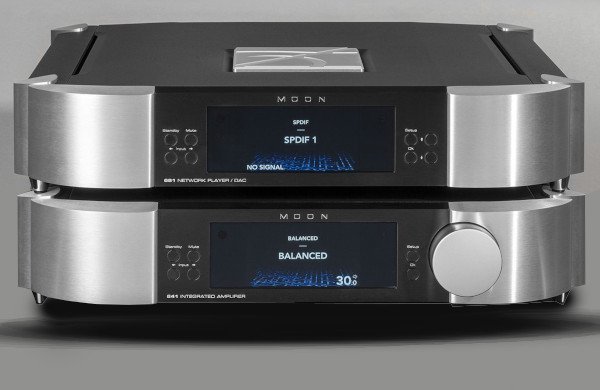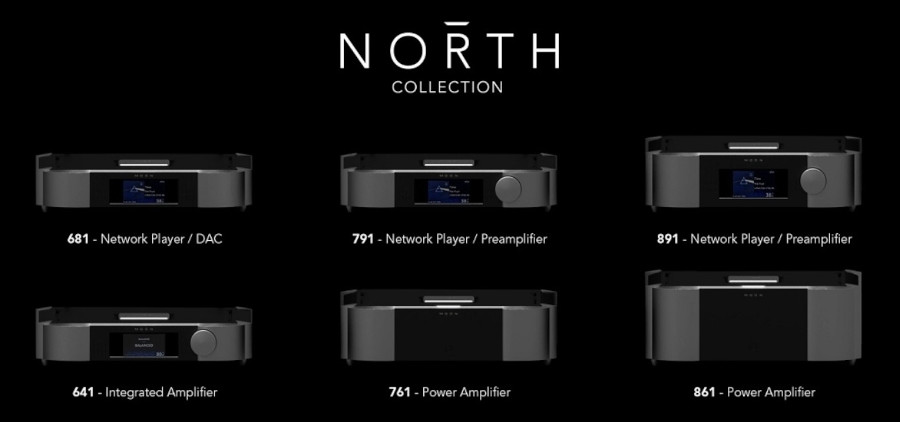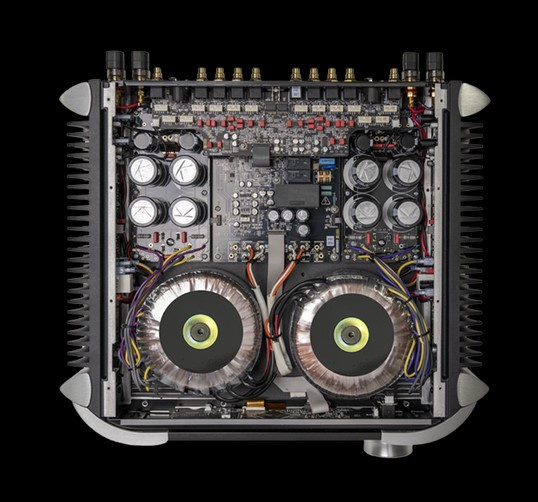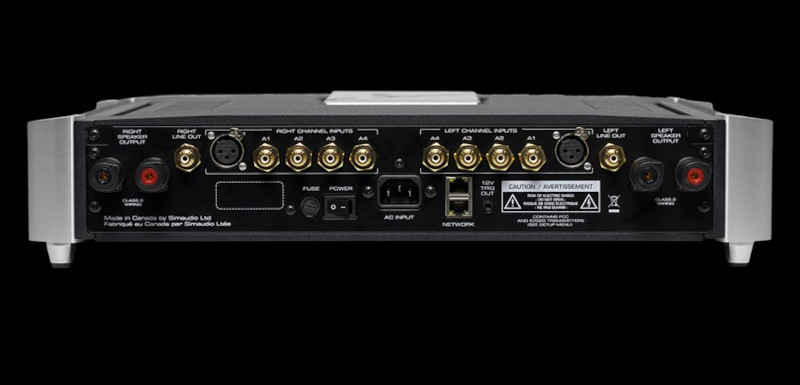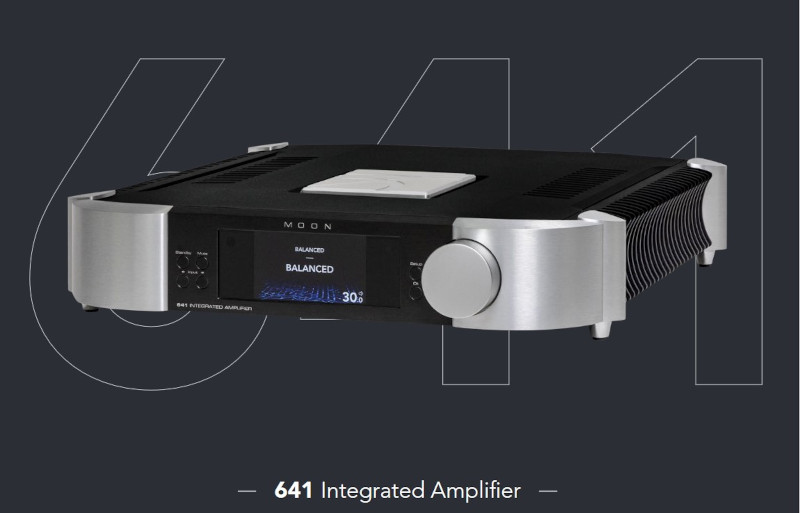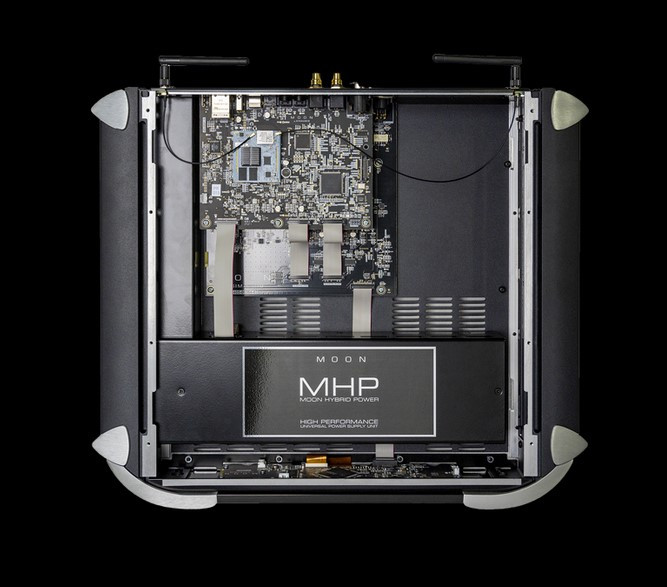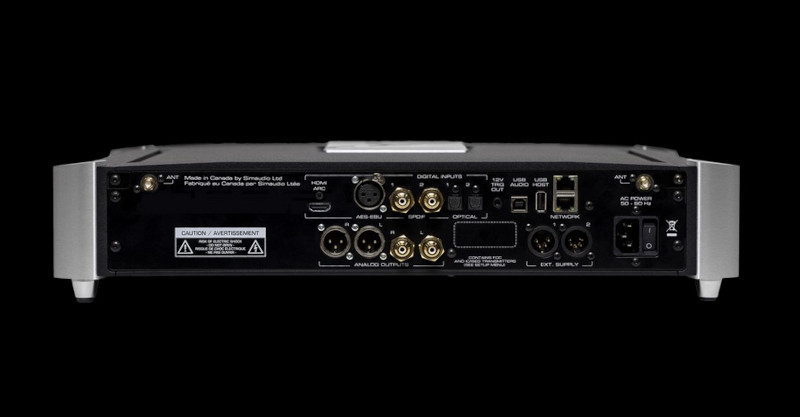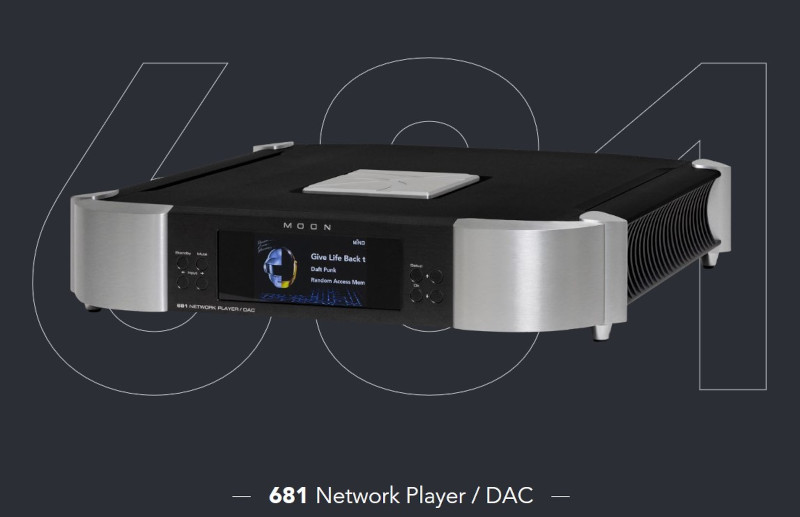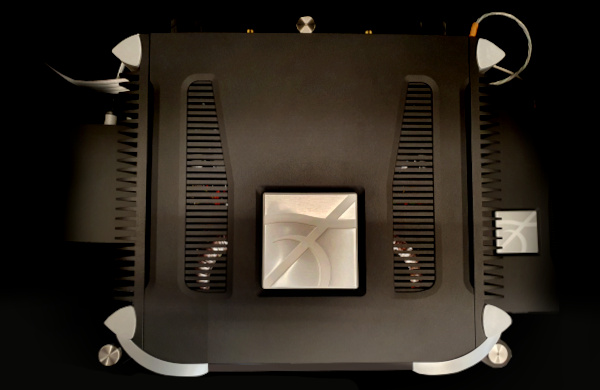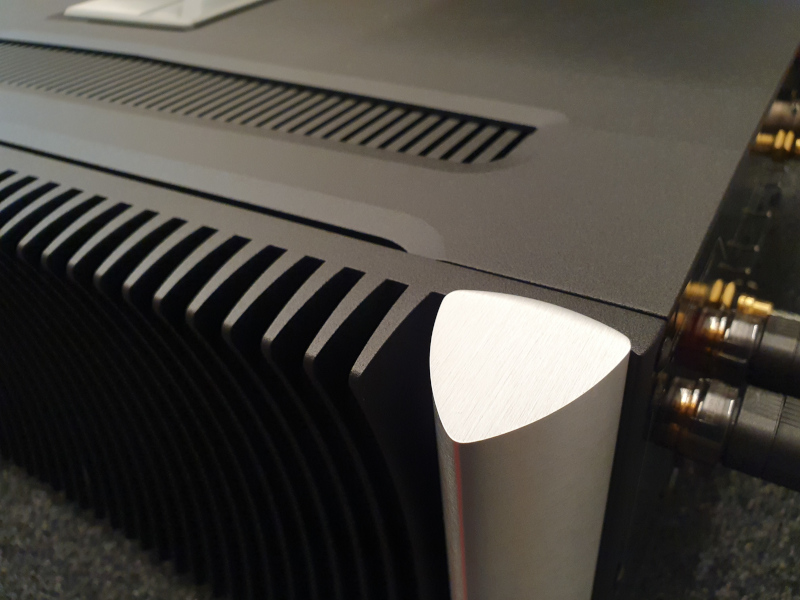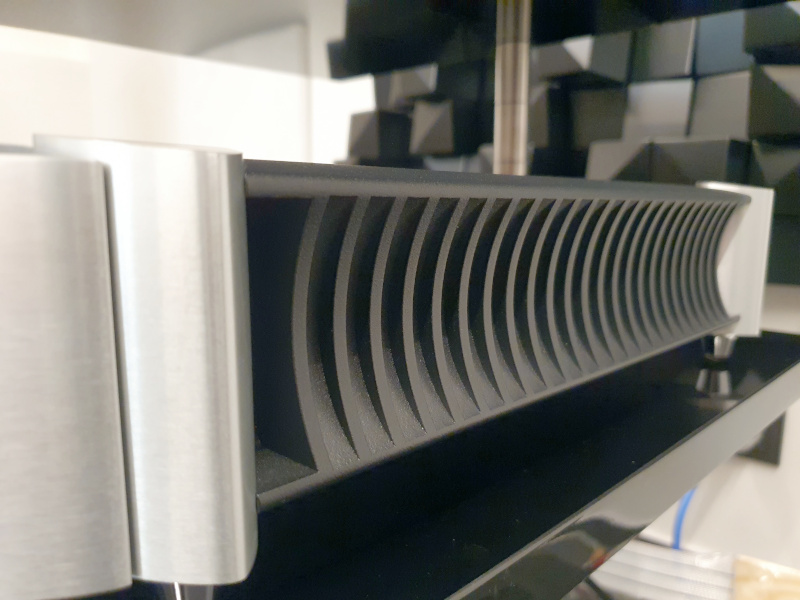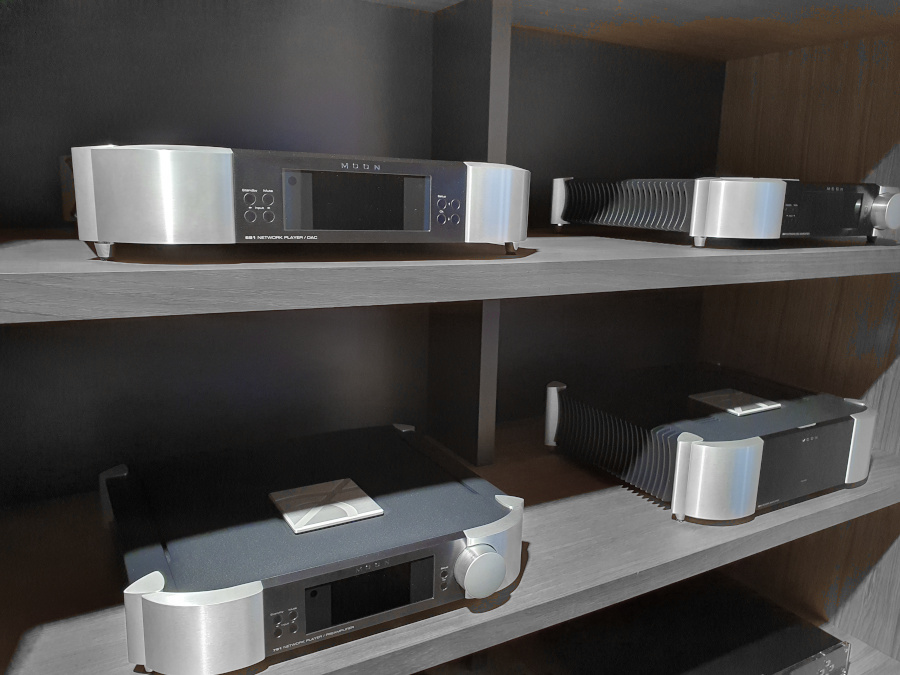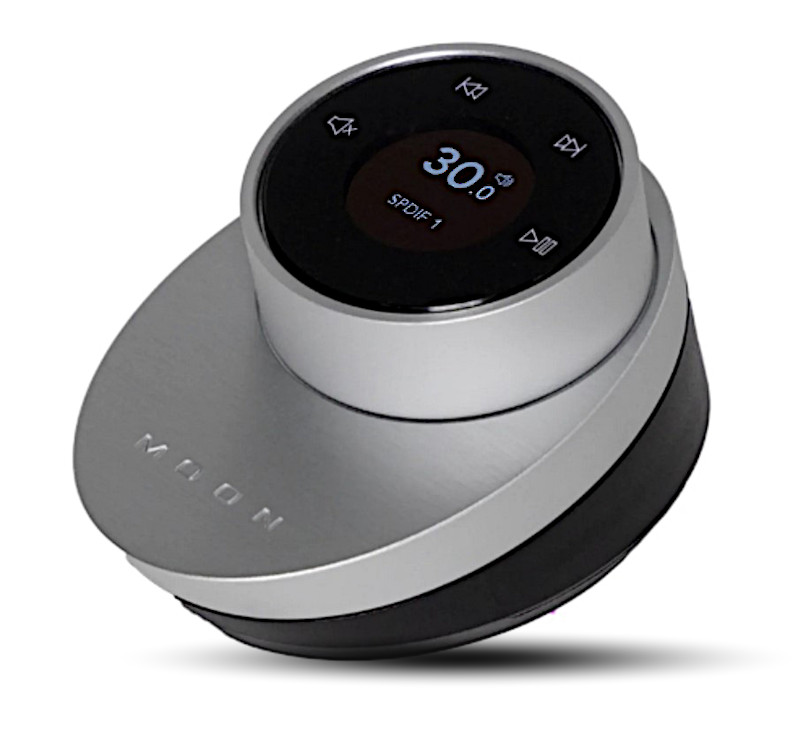MOON by SIMAUDIO 641/681
Power amplifiers
The typical cliché of “the separates always sound better” saw its advent before the Covid pandemia and has been declining since then. With lifestyles getting busier, new audiophiles drift towards simpler solutions with ease of integration, rather than often too much complicated playback chains of their fathers. Of course, the fathers will not surrender, unfortunately they represent only small percentage of target audiences for the companies like Simaudio. The Moon North collection is a good example of it: it is all about two audio components plus loudspeakers to achieve previously unachievable levels of performance.
Function and form
I am not going to elaborate on why Simaudio, why Moon, and why North – all of this has been covered in my review of the 891/861 combo. The source, that is the multifunctional Moon 681 Network Player, is conceived in the very much same vein as its more expensive sibling. By the help of its improved MiND2 protocol (Moon Inteligent Network Device), it can stream from local servers (PC, NAS), and from internet with AirPlay 2, Spotify Connect and TIDAL Connect (Roon Ready) support. It also can be used as a DAC only, with the conversion based on 32-bit ESS technology complemented with Simaudio’s proprietary discrete FPGA oscillator. Unlike the 891 Network Player, the 681 does not have the preamplifier in it, so its variable outputs only attenuate and do not provide any gain. Also, for economic reasons, the phono preamp was left out. The data can travel to the Player through AES/EBU XLR (PCM), coaxial S/PDIF (PCM), optical Toslink (PCM), USB-B (PCM, MQA, DSD) and HDMI/TV (PCM), and through USB-A for portable flash discs. Analog inputs and outputs are balanced and unbalanced, and each pair can be configured as fixed or variable. The 681 features the connector for Moon 820S external power supply – Simaudio is busy with the new version of it, it should be launched in coming months.
The Moon 641 integrated amplifier has balanced and unbalanced inputs too and provides high gain of +40dB and power of 2x250W (4 ohms), 2x125W (8 ohms) respectively. I like the presence of L/R RCA outputs on its rear panel; they can be used for subwoofers, active loudspeakers, and for headphone preamplifier. Again, the outputs can be configured as fixed or variable. Due to the high gain the fixed setting must be approached with certain cautiousness – fortunately the Moon allows to set the maximum gain after powering on the unit to prevent killing the connected electronics. The 641 integrated amplifier has slightly worse values of the damping factor (700) and the signal-to-noise ratio (109 dB) compared to the 861 flagship amp, which is exactly why performance tiers exist in audio.
The central position of the player is occupied by 4.3’’ LCD display that controls its functions. However, it is easier to use the fantastic all new ergonomic Moon BRM-1 remote control. It is included in the box, together with Moonlink data cables. Interestingly, the integrated amplifier also features the same 4.3’’ LCD display, which – aside the shared aesthetics - I find a bit redundant, but it can be switched off.
Bass management
Natalie Merchant’s Peppery Man (MQA, 44.1kHz) is one of my favourite text tracks since I have heard it through YG speakers two years ago. This acoustic blues piece features wonderfully recorded voices and instruments, and in its Elac Anniversary remastered version it sounds great. It is great sounding through the Moon 681/641 combo too. The sonority of the voices is flawless, the dynamic scales are dynamic, the colours are vivid and surprising at this price point. I do appreciate Moon’s high degree of clarity, the transients are sharply defined and the music has snap. Ditto for bass, that is free of rounded warmth - it is well articulated and punchy.
Clarity & delicacy
The Moon 641 integrated is not as accomplished as the much more expensive 861 model, yet it is not far away from it. The sound of the integrated is skillfully balanced, so it is not that you hear any obvious deficiency, it is just that the sound is less mature, less complete.
For example, the combo 681/641 let you know that tambourine’s rattle is based on metallic pieces hitting each other (Tutti, Dance of The Tumblers, Minnesota Orchestra, RR, FLAC 44.1kHz), yet the jingles are more resolved and more distinct through the 891/861 combo, and the texture of the instrument has better flow. The same can be said about trombones, where the colour palette was reduced with the 641. However, in the context of competition, the 641 attacks the superb sounding integrated amplifiers like Mark Levinson No.585 and Accuphase E-5000, that are both more expensive than the Moon.
Tonal accuracy
Let´s do the math. The 891/861 combo costs 50k€ at the time of this review. The 681/641 combo is about half the price at 25k€. The cheaper 681 Network Player has no active gain but it can control volume the same way the more expensive 891 Player does. If you pair the 681 with the 641 integrated, the gain is not needed as it is a part of the amplifier. In sum, the resulting gain (40dB) is equivalent to the total gain of the 891/861 combo. If you don’t use the 641 integrated and use the 681 to feed any power amplifier or a pair of mono amplifiers, the gain of such amps will be sufficient anyway, unless you live in a concert hall or you prefer SET tubes. The attenuation is all you need. So, the only differentiating factor (money-wise) is the absence of the phono preamp in the 681. However, the phono compatibility can be seen as a nice add-on only. If you’re a rich enough audiophile to afford the flagship 891 Player, you will not accept the integrated phono preamp anyway and will probably go for a dedicated device. Now the best part: in my opinion, the 681 provides at least 80-90% of the 891’s sound. To get to 100%, you need to pay twice as much. It’s a typical high-end cost/performance curve, isn’t it?
Spatial resolution
As much as the Simaudio’s Network Players are quite close to each other in terms of performance, the 861 and the 641 amplifiers have bigger gap between them. The 641 sounds like a compromised version of the 861. It is less free flowing, has less authority, it is not so dynamic, its colours are not so saturated, and its textures are not so finely sculpted. Clear cut, you’d say, but… but there is one more option: to crossbreed the 681 Network Player and the 861 power amplifier. I tried that and it sounded fabulous. If you cannot afford the flagship combo but want the best bang for the buck from the current Simaudio’s line up, go for it!
To complicate the things furthermore (and I hope I won’t get blacklisted by the distributor), the 681/641 combo performs much better than the 791/761 combo that should presumably split the difference between the cheapest and the most expensive combination. To conclude, if you want to acquire a minimalistic streaming playback chain that will outperform almost anything at the same pricing level, go and get the Moon 681/641.
Recommended resellers
CZ: Mareka Audio, Horoměřice, +420 603 259 667
CZ: Avitsmart, Praha, +420 605 836 876
SK: Platan Audio, Hlohovec / Bratislava, tel. +421 905 409 802
Manufacturer's website: http://www.simaudio.com
Associated components
- Sources: Simaudio Moon 891/791/681 Network Player, Ayon CD-35 HF Edition
- Amplifiers: Simaudio Moon 861/761/641, Audia Flight Strumento No.8 MkII monoblocks
- Interconnects and speaker cables: Nordost Valhalla V2, Synergistic Research SRX, AudioQuest Vodka
- Loudspeakers: Dynaudio Confidence 60, Silent Laboratories Melodee, Silent Laboratories Equilibrium
- Power conditioning: RD Acoustic RD EMI Neutralizer 4,6 kW, Synergistic Research SRX, Nordost QPoint, Nordost QBase, GMG X-Blocker, AAI Maestoso 2
ACCUPHASE A-300
For Accuphase, the A-300 monoblock amplifier is considered a jewel in the crown. Although it is not the most powerful amp in their line-up – the P-7500 is with its 2x300W in Class AB – it is certainly the most powerful Class A device ...
Recommended resellers
Perfect Sound Group, Praha, tel. +420 722 960 690
Nisel SK, Bratislava, tel. +421 905 203 078
ACCUPHASE A-65
The A-65 has a better bottom-end control and though it does not equal to the solidness of, let's say, Bryston or Plinius, the improvement has moved the new amp in the right direction. Overall, the Accuphase A-65 is more refined, ...
Recommended resellers
Nisel SK, Bratislava, tel. +421 905 203 078
ACCUPHASE A-80
Before any critical listening, let the amplifier warm up for an hour, as it does not do its best when cold. When I owned A-70, I never switched it off, although I acknowledge it was quite an expensive for the Class A drew over 200 ...
Recommended resellers
Perfect Sound Group, Praha, tel. +420 722 960 690
Nisel SK, Bratislava, tel. +421 905 203 078
APOLLON AUDIO PET 950
Eigentakt is the current last word in Class D amplifier technology. It marries Class D efficiency and clean output power, low impedance rating, and compact design to vanishingly low harmonic and intermodulation distortion, and ...
Recommended resellers
Apollon Audio direct webshop
ASR Emitter II Exclusive Blue
When mankind is eliminated by a gigantic volcano eruption, a tsunami or Godzilla, most parts of the Emitter will remain to exist as this amplifier is dustproof, waterproof and heatproof. The ASR's catalogue is far from complicated - ...
Recommended resellers
Audiostudio s.r.o., Olomouc, tel. +420 608 752 475
AUDIO RESEARCH Reference 80S
Audio Research is an amplifier legend. The brand had been expected to get a boost when it was acquired by Fine Sounds Group (now transformed into McIntosh Group), however, the lift off did not happen. Recently the brand has been ...
Recommended resellers
HI-FI studio TYKON, Ostrava, tel. +420 723 449 894
AUDIOLAB 8300MB
Bass is essential. Music is no fun without good fundaments, unless one prefers listening to flute recitals only. In a recording studio the bass, that is the drums and the bass guitar, are the first thing that has to be gotten right ...
Recommended resellers
Horn Distribution, Praha, +420 272 656 485

